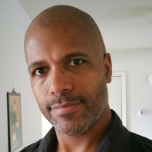Q&A: Deloitte’s Lisa Noon on Inclusivity and Cloud EvolutionQ&A: Deloitte’s Lisa Noon on Inclusivity and Cloud Evolution
As adoption of the cloud accelerates, a broader mix of perspectives can help accelerate innovation.

Breaking down the hurdles to cloud transformation can coincide with increased inclusion in the cloud sector. As enterprises look to make the most out of cloud resources, there is also an opportunity to cultivate more diversity in the ranks of those who develop and innovate in this space.
Lisa Noon, managing director at Deloitte started her career as a development engineer creating global enterprise systems. She has since led board-level transformation at enterprises and tech companies. These days she also works on joint initiatives between Deloitte and Google Cloud. Last year, she says, Google named Deloitte as its Global Services Partner of the Year after the firm invested heavily alongside Google to drive adoption for Google Cloud Platform across industry verticals. Noon spoke with information about ongoing cloud evolution and continuing efforts to make the cloud sector more diverse and inclusive.
What types of cloud collaboration projects have you worked on?
“I joined Deloitte to help scale the Google practice. We’re all in a hyper growth market and my aim was to get behind all the things Deloitte was already doing. I have a role with the firm in diversity and inclusion and have a broad role across cloud engineering, fairly specifically oriented toward native cloud app development and advanced analytics and machine learning use cases.
“We’ve seen a marked uptick over the last two years in GCP [Google Cloud Platform] adoption in our client base. We think Google has a great product and we can drive a lot of value for our clients. The application thereof can remove barriers to the admittance of cloud to traditional enterprises and scale up through application migration into advanced analytics, ML [machine learning], and Neo cloud app dev. We’ve got a broad portfolio of engagements and offerings across the entire sector landscape.
What are the needs and pain points you see in enterprise? Are they getting their arms around what is feasible when making the migration?
“We’ve pretty much moved past ‘if cloud’ and ‘why cloud’ and into ‘when cloud’ and ‘now cloud.’ Some industries and enterprises are at a different level of maturity in terms of adoption for good and valid reasons. Compliance and security concerns, specifically in regulated environments that lag on the adoption of technology over the years. Generally in cloud, providers have checked all the boxes in terms of the basic requirements necessary to satisfy most IT operations teams. Now we’re moving more aggressively through the spectrum of adoption.
“Some of the industries that went first at migration have moved through to more of a lifting-shifting model and are now into major refactoring or machine learning or advanced analytics and native cloud app dev. Some are still just getting started. We have tip-of-the-spear offerings, from an advisory perspective, for how to go about adopting cloud and how to stand up early cloud environments that are secure and integrated with the right level of operational practices and tooling. All the way through to how to do mass migration and stand up DevOps-supported, agile teams who are leveraging platform as a service. I think we’ve seen cloud adoption hit the hockey stick moment.
Are there particular aspects of cloud that could be further leveraged by enterprise that have not yet seen their potential realized?
“There’s a big promise when it comes to machine learning and AI. It’s still cloud; there’s a lot of hype around that but trying to sort out how to apply it to drive business value—people are still evolving on that. We’ve had some early successes with clients who invested pretty heavily in getting past that learning curve. Those are still fewer in the market than I think you’ll see over the next year as people get more comfortable with it. One of the inhibitors to that is data quality.
“Aside from understanding how to apply something really sophisticated, it’s the identification of the data sources and getting the data cleaned up, curated, and wrangled to the point where its ready to apply some machine learning technologies. We do a lot of that with Google, which invested heavily over the years in commercializing some of their internal capabilities. We’re having great success leveraging that with clients in the market.
“There’s been some reluctance to jump in with cloud native platforms. The value of that has been demonstrated through pilots and proofs of concept and in conjunction with the alleviation of some of the security compliance concerns. The promise of low-ops or no-ops and a highly productive environment where you can set a relatively small team of engineers loose to deliver business value really quickly is starting to overcome the last set of inhibitions toward that. I think we’re going to see some real enterprise applications built on cloud native platforms.
Are there any industry-specific opportunities you see in cloud or are their needs universal?
“Most of the specificity I see for requirements is around regulatory and compliance. The rest of it—operational platforms, toolsets, and skillsets—are pretty universal. At this point, each industry vertical seems to have its own level of concern and requirements for security and compliance. Most of the differentiation is in that space. If you were to rank the industries, it’s the same as it has been for any major technological advance over the years. Regulated industries are farther behind than non-regulated industries. You could apply the filter that born in the cloud companies, for obvious reasons, are farther ahead than enterprise companies who have legacy to manage alongside innovation.
How does the cloud sector currently measure up in terms of inclusion and diversity of voices represented? Do we have more diverse perspectives and recognition of the people who make up the cloud community?
“Based on where we started, we’ve shifted light years from where we were. We started with just recognizing and acknowledging, then built a network to support those we did have in the workforce while we organized for change over many years. We’re at a point now when all those investments and energy have paid off.
“In this space there are levers you can pull that affect a cultural shift. I think we’re very well along in that regard. If we’re taking a global perspective, we might be further along than some parts of the world. The second part is hiring, retaining, and advancing the talent we do have. Definitely seeing a positive shift and it continues to improve every day. For those of us who have been at it for a while, just trying to hire more diverse people than your counterparts at other firms is a zero-sum game. At some point we all need to come together and get more diversity in the workforce.
“One of the reasons why I came to Deloitte is the top-down focus in increasing the amount of diversity that’s embedded in our culture. Outreach and mentoring over the years to young, diverse constituents is starting to bear fruit. We can see our interns coming in who are more diverse. We’re seeing the ratios start to improve for developers, data scientists, and cloud engineers.
Why does it continue to be important to make effort to be more inclusive?
“Better ideas get focused into the space, which is innovative by nature. With different backgrounds we have different types of experiences. It’s a very large domain we’re in so the more inclusive we can be, the better off our product and degree of innovation will be.”
About the Author
You May Also Like






